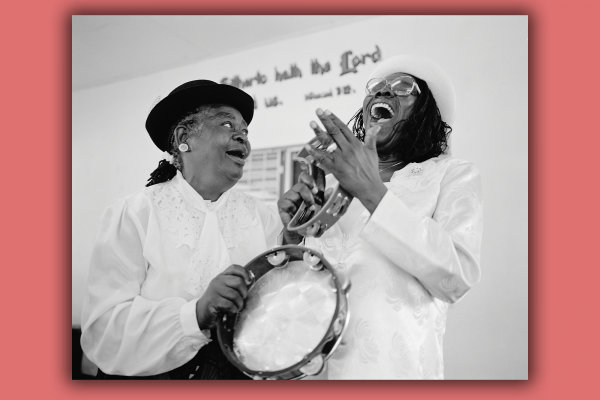I'VE NEVER REALLY thought about what church ladies do when they’re not at church. My interactions with them have always been tied to the building and its activities. In pre-pandemic times, I would see them at service and maybe hug or shake hands, chat briefly, or just wave goodbye on my way out the door. But easy smiles and they’ve-got-it-together appearances belie the “less presentable” parts of everyone’s story, bits that, if shared, could create a space where we no longer feel isolated, but instead are comforted by the fact that each of us is trying to deal with at least one hot mess in our lives. The Secret Lives of Church Ladies by Deesha Philyaw unflinchingly tells the stories of a few of those messes, stories of the things that we hide.
Each narrative in the collection aches with a desire for connection, and Philyaw provides the reader a sometimes uncomfortably intimate view of how these “church ladies” try to meet this need. Some characters turn to intimate affairs, choosing partners with whom they can envision more or partners with whom there can never be more than fleeting and secret arrangements, sometimes due to the damage of homophobia. Other stories aren’t about romantic desires at all, but feature characters longing to connect with family, carrying a deep-seated, perpetual wish to simply be seen, valued, loved, and embraced for who they are by the people they thought could be expected to do so.
I particularly love that this collection features characters of diverse ages. I’m so tired of how not-entirely-subtle ageism has crept into various avenues of storytelling, as if all significant human experience, growth, and formation is wrapped up by the time you’re 40. Philyaw rejects this notion and delivers fully formed characters of all ages.
And while Philyaw’s stories explore universal themes of desire and rejection, hope and despair, growth and acceptance, her stories are distinctly Black. As a Black woman I felt a particular familiarity as I read about shower caps, sweet potato pie, church hats, colorism, and hot combs. The clincher for me was the laughter that bubbled up when I read about a Black woman at a conference playing “Count the Negros,” a game I play often, having existed in predominantly white spaces my entire life. All of these details sit firmly under the “if you know, you know” umbrella, and I know. It’s comforting to read stories and feel like an insider instead of an interloper. And, yet, even in their specificity, these stories are accessible to folks who “don’t know.” To write stories that can be universally understood and unequivocally Black bespeaks Philyaw’s skill and her personal understanding of her identity as a member of the human collective who also exists in the specific context of life as a Black woman.
The Secret Lives of Church Ladies has received much critical acclaim, as well as the Story Prize, the PEN/Faulkner Award for Fiction, and a nomination for the National Book Award for Fiction. Actor Tessa Thompson will be widening the book’s reach by bringing these stories to the screen. Thompson and Philyaw will serve as executive producers of the HBO Max adaptation, with Philyaw also writing its scripts.
Not long after finishing The Secret Lives of Church Ladies, I encountered a quotation from Frederick Buechner’s memoir Telling Secrets that captures what I feel is the heart of Philyaw’s book: “I have come to believe that by and large the human family all has the same secrets, which are both telling and very important to tell. They are telling in the sense that they tell what is perhaps the central paradox of our condition—that what we hunger for perhaps more than anything else is to be known in our full humanness, and yet that is often just what we also fear more than anything else.”
I think back to the church ladies I’ve known over the years, and one stands out in particular. A Black woman married to one of the pastors on staff, she always wore a thick layer of makeup and a too-bright smile, creating a seemingly impermeable mask. I wonder, what secrets was she hiding? And what secrets did we bear in common? It’s possible we were more alike than my casual observations could fathom.
The Secret Lives of Church Ladies serves as a poignant reminder of this truth and beckons us to consider better embracing ourselves and others in the fullness of our secrets, our brokenness, our pain, our joy, and ultimately, our humanity.

Got something to say about what you're reading? We value your feedback!






